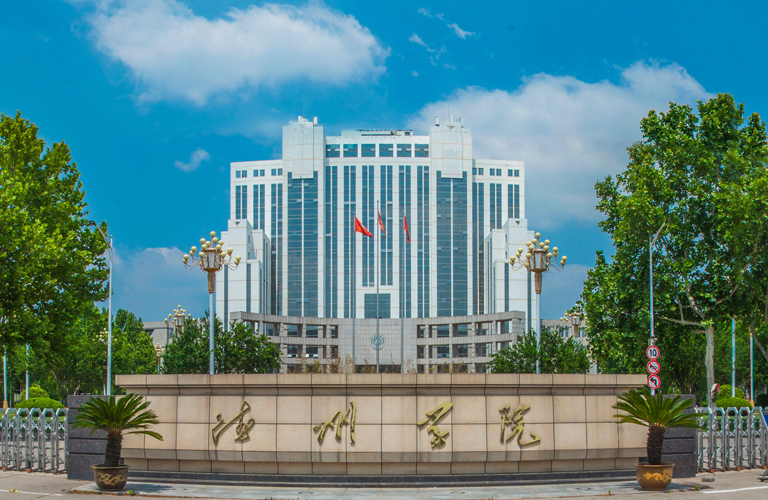


Dezhou University was founded in 1971 as Dezhou Teachers College. In 2000, it was renamed Dezhou University with the approval of the Ministry of Education. In 2006, it was among the first of its kind nationwide and the very first in Shandong Province to pass the Ministry's Undergraduate Teaching Quality Assessment. In 2009, it was approved as a joint postgraduate training base by Shandong Province; in 2016, it successfully underwent the Ministry's follow-up audit of undergraduate education. The university was designated a key cultivation site for master's-degree granting in Shandong Province in 2017, selected as one of the province's first supported application-oriented undergraduate institutions in 2021, and recognized as a precision cultivation unit for master's-degree authorization in 2022. In 2024, Dezhou University was officially authorized to confer master's degrees.
The university covers approximately 2,000 mu (about 133 hectares) and offers 689,000 m² of total floor area. Its teaching and research equipment is valued at about RMB 300 million. The library holds 2.459 million print volumes and 1.316 million e-books. Dezhou University comprises 23 schools offering 65 bachelor's programs and recruits students from 22 provinces, municipalities, and autonomous regions across China. The university has over 27,000 full-time undergraduate and associate-degree students and 38 graduate students, over 360 jointly trained master's and doctoral candidates, more than 140 international degree-seeking students, and about 14,000 continuing-education learners. The university employs over 1,700 faculty and staff, including more than 1,400 with doctoral or master's degrees and over 600 with senior professional titles. Nearly 200 adjunct doctoral and master's supervisors also serve on campus.
Dezhou University is committed to a vigorous internationalization strategy and an open-door action plan. To date, the university has established academic partnerships with 112 universities and research institutes in 24 countries and regions. It currently operates 1 Sino-foreign cooperative educational institute (covering 4 undergraduate programs) and 1 Sino-foreign cooperative educational project. Joint master's- and doctoral-level training programs are under way with 6 leading universities and research bodies in 5 countries—Malaysia, Russia, Indonesia, South Korea and Poland. Nine international collaborative research platforms are currently active on campus. Among them, the Shandong–ASEAN Research Center is officially filed with the Ministry of Education as a "National Center for Area and Country Studies," and the Shandong Russia & Central Asia Economic and Cultural Research Center has been approved by the provincial government. The university serves as the Chinese Secretariat of the China (Shandong)–Indonesia University International Cooperation Alliance and has established the Shandong–Ilocos Norte Humanities & Education Exchange Base, the Shandong–ASEAN Youth Exchange Base, and the Thai Language & Culture Exchange Center. The university has been granted and is implementing the CSC-funded International Exchange Program for Outstanding Undergraduates and the Russia-Ukraine-Belarus International Cooperative Training Program for High-level Pharmaceutical Talents. It is a high-quality "Shandong Province Chinese Language Education Base" and has successfully hosted projects such as the Overseas Chinese Affairs Office's pilot program for online dispatched teachers. The Confucius Institute at Universiti Tunku Abdul Rahman in Malaysia was approved and established under the university's auspices, and the university has been authorized to admit international Chinese-language teacher scholarship students. More than 600 degree-seeking and language students from countries such as Russia and Thailand are currently enrolled, and the university is qualified to recruit undergraduates from Hong Kong, Macao and Taiwan.
(Updated in September, 2025)